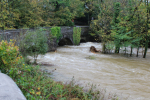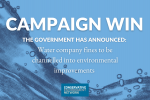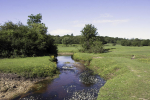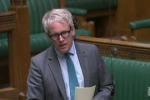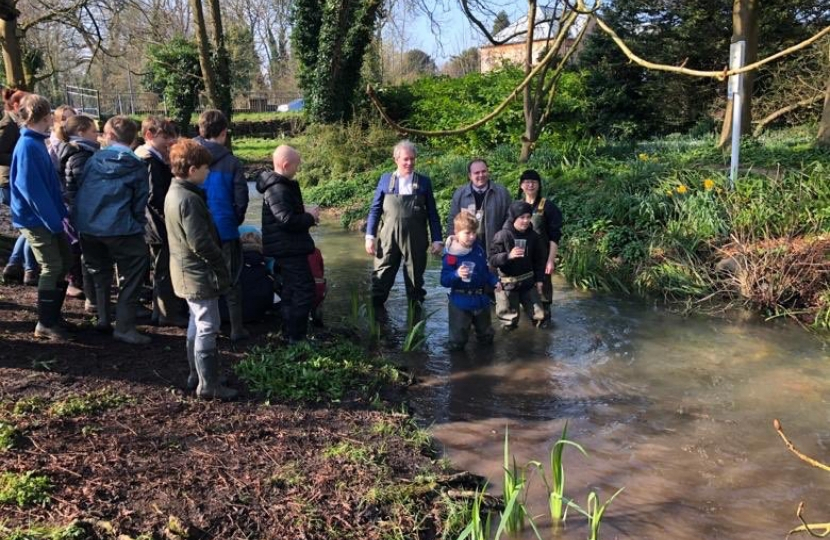
Wiltshire is a uniquely important landscape, shaped by human beings for thousands of years and home to an extraordinary diversity of wildlife. Our area is also the source of the three principal river systems of southern England, with the Kennet (the main tributary of the Thames), the Hampshire Avon and the Bristol Avon all taking their rise within twenty miles of each other.
All British rivers have suffered pollution for many decades. And despite some real improvements - for example, three-quarters of our bathing waters in England are now classified as ‘excellent’, up from half in 2010 - the state of our rivers remains unacceptable.
We see too much pesticides from farmland, and too much sewage from our homes, getting into the streams and rivers. The problem of sewage is caused by over-development (too many houses, badly designed so rainwater ends up in the drains) and decades of under-investment in the sewage system by the water companies.
The fact that rain and sewage are mixed in the same drainage system is a legacy of Victorian design that will take years to fix. What we can do immediately is ensure new houses have separate drainage systems - indeed that rainwater ends up in the garden or in soakaways without having to go into the drains at all. And we can insist on large-scale investment in the sewage system, both in new infrastructure (pipes and treatment works) and in nature-based solutions like reed beds. Better planning policy - including the protection of floodplains - would also reduce the risk of flooding.
I have campaigned strongly for much tougher action against water companies which discharge sewage into the rivers and I am glad the Government has introduced unlimited fines for companies that breach the rules. We also now monitor 100% of discharges - up from just 7% in 2010 - so we know where the problems are. I also successfully lobbied for the fines to be used to remedy the damage done by discharges, or go into other local environmental projects, rather than being swiped by the Treasury as formerly.
We are now seeing the biggest ever environmental infrastructure investment from the water sector, including £56 billion for storm overflows. The rules are designed to make polluters pay to deliver clean and plentiful water for both people and wildlife.

